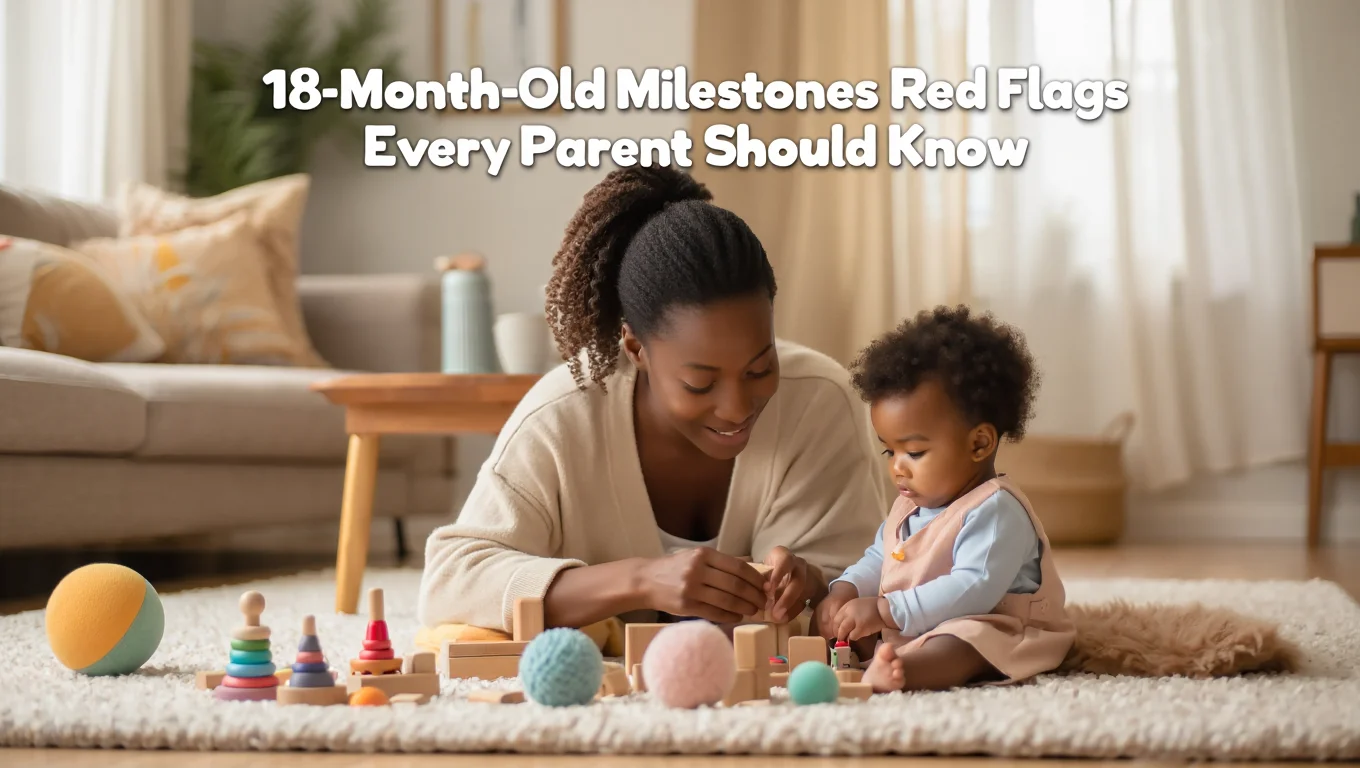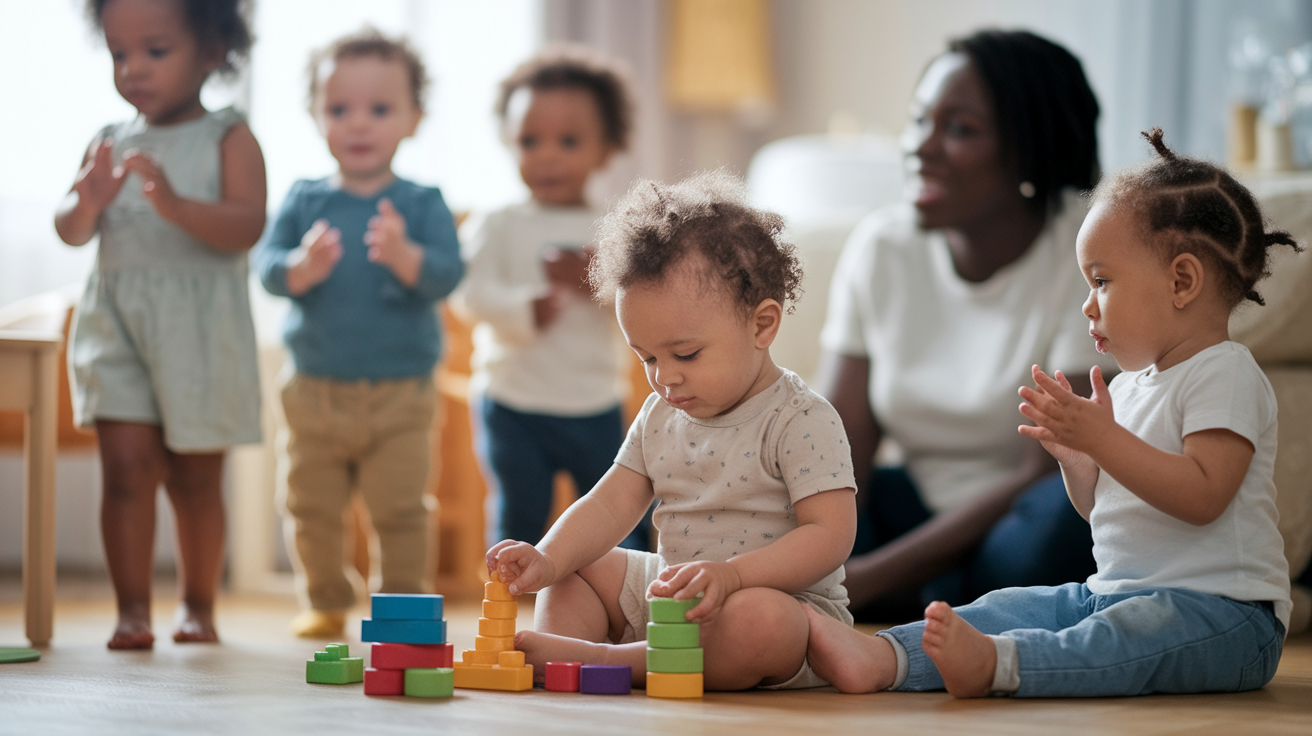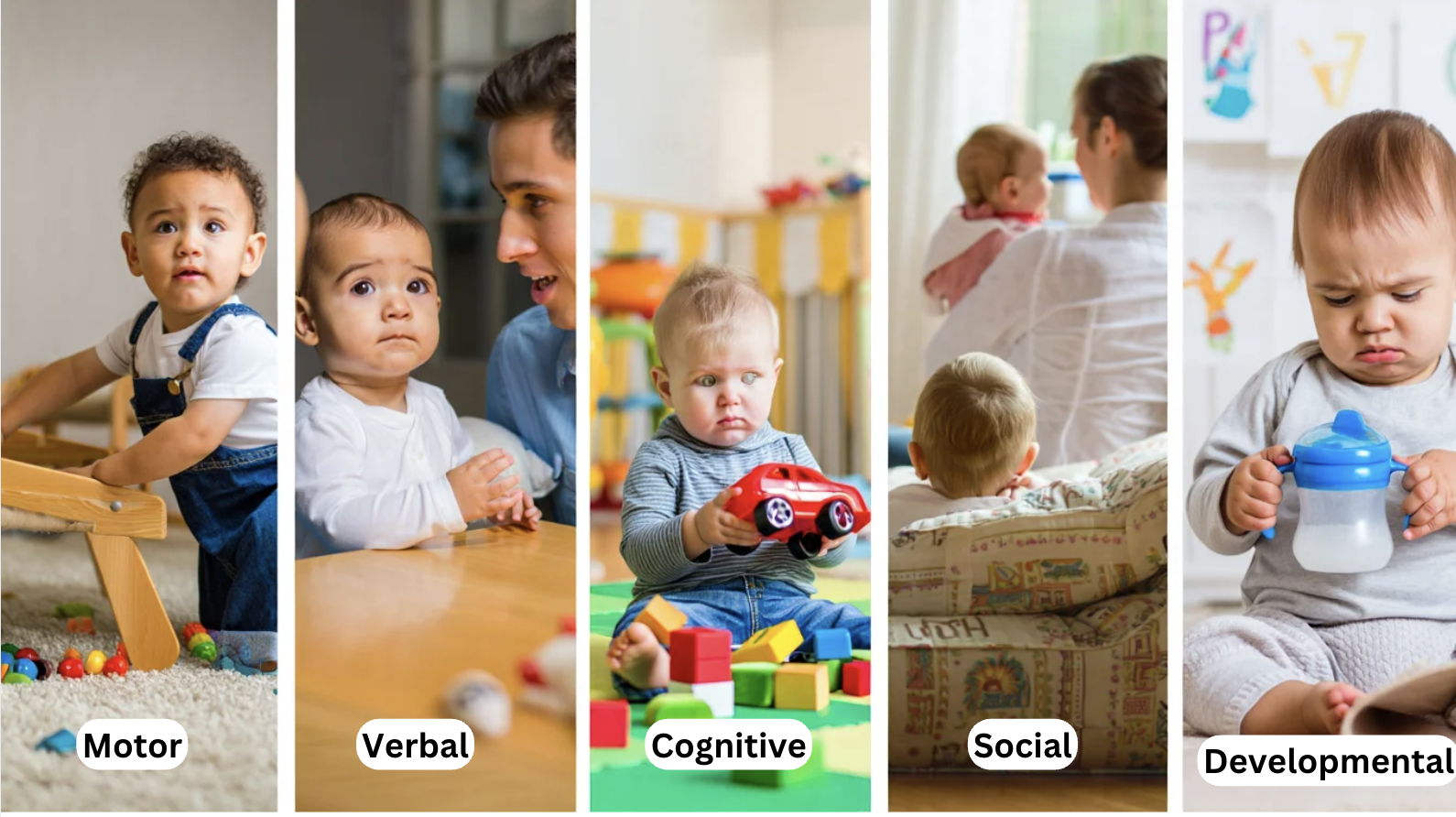
Watching your little one grow is exciting, fills anyone with wonderful moments. By 18 months, your toddler is developing quickly, learning new skills, and exploring their world with curiosity.
While each child grows at their own pace, keeping track of common milestones helps you understand your baby’s development.
Knowing what to expect at this age is helpful for all parents. Most toddlers reach similar skills around the same time, but sometimes, delays happen.
These delays, or “red flags,” don’t always mean something is wrong, but they can signal when your child might need extra help. Early support makes a big difference when challenges arise.
You will learn about normal 18-month milestones and point out signs that might need your attention or a doctor’s review.
Remember, you know your child best, and sharing any concerns with your healthcare provider is always a good idea.
What Are 18-Month-Old Developmental Milestones?
By 18 months, your toddler is becoming more independent every day. Most children this age walk steadily without help and may even run or climb stairs while holding onto railings.
They’re developing fine motor skills too, using spoons to feed themselves (though messily!) and scribbling with crayons.
Your little one’s language is blossoming, typically using 5-20 words and understanding many more. They follow simple directions like “bring me your shoe” and point to show you what they want.
Socially, 18-month-olds enjoy simple pretend play, like feeding a doll or talking on toy phones. They show affection to familiar people and may have separation anxiety when you leave.
Cognitively, toddlers this age remember where objects belong, stack blocks, and solve simple problems. They’re also learning self-help skills like drinking from cups, removing simple clothing items, and helping with dressing.
Why Some Toddlers May Hit Milestones at Different Rates?

Every child grows and learns in their own special way. Parents should remember that milestone charts show what’s typical, but not every 18-month-old will follow the same path.
Some toddlers might take longer to reach certain skills, while others might zoom ahead in some areas but take more time in others.
The main reasons toddlers might develop at different rates include:
- Each child has their own natural timeline for development
- Family genetics can influence when skills appear
- Different environments and experiences affect learning
- Some children focus on mastering one skill before moving to others
- Health factors or birth circumstances may impact development timing
Red flags aren’t meant to cause worry but rather to help identify when extra support might be needed.
If you notice your child isn’t meeting several milestones, talking with your doctor can help determine if there’s any need for concern or early intervention.
Common Red Flags to Watch for 18 Month Old

Parents should be aware of potential developmental concerns in toddlers around 18 months of age. While all children develop at their own pace, certain signs may indicate the need for professional evaluation.
1. Motor Skills
Motor development involves how your toddler moves and controls their body. By 18 months, most children are walking independently and beginning to explore their environment with confidence.
Signs to Watch Out for:
- Not walking independently by 18 months
- Strongly favoring one side of the body over the other
- Difficulty with basic climbing or stair walking (even with help)
- Inability to pick up small objects using thumb and finger grasp
2. Communication and Language
Language development is rapidly expanding at this age. Most 18-month-olds are beginning to use words and understand simple instructions from caregivers.
Signs to Watch Out for:
- Not saying any words at all by 18 months
- No response when called by name
- Unable to follow simple one-step directions
- Not pointing to objects or pictures when named
3. Social and Emotional Development
Social skills are developing as toddlers learn to interact with caregivers and other children. Emotional bonds should be strengthened during this period.
Signs to Watch Out for:
- Shows little or no interest in other children
- Doesn’t make eye contact during interactions
- Rarely seeks comfort when upset or hurt
- Doesn’t engage in simple pretend play (like feeding a doll)
4. Cognitive and Play Behavior
Cognitive skills involve how your child thinks, learns, and solves problems. Play is a primary way for toddlers to explore and understand their world.
Signs to Watch Out for:
- Doesn’t imitate actions or words of others
- Shows little curiosity about surroundings or new toys
- Unable to find objects after seeing them hidden
- Doesn’t use objects appropriately (like drinking from a cup)
5. Developmental Regression
Regression means losing skills that were previously mastered. Any significant loss of abilities should be discussed with a healthcare provider.
Signs to Watch Out for:
- Loss of words or communication skills previously used
- Decreased interest in social interaction after previously showing interest
- Loss of motor skills that were previously demonstrated
- Return to more primitive behavior patterns after mastering advanced ones
Activities That Can Support 18-Month-Old Development

If you’ve noticed any potential red flags, these activities can help support your child’s development in key areas. Regular play and interaction are essential for helping toddlers reach their milestones.
1. For Motor Skills
- Roll or toss soft balls back and forth to practice coordination
- Provide chunky crayons and paper for scribbling to strengthen hand muscles
- Create a safe obstacle course with pillows and cushions for climbing
- Offer push-and-pull toys that encourage walking and balance
2. For Communication and Language Skills
- Read simple picture books together daily, pointing to and naming objects
- Sing songs with actions like “Wheels on the Bus” or “Itsy Bitsy Spider.”
- Narrate daily activities clearly: “Now we’re putting on your shoes.”
- Play naming games during meals or bath time: “Can you point to your nose?”
3. Social and Emotional Development
- Arrange playdates with other children to practice sharing and interaction
- Play peek-a-boo and other turn-taking games
- Give your toddler simple tasks like helping put away toys
- Create a comfort corner with favorite stuffed animals and books
4. Cognitive and Play Behavior
- Offer shape sorters and simple puzzles with large pieces
- Play hide-and-seek with toys under blankets to build object permanence
- Provide containers to fill and empty with safe items like dry pasta
- Demonstrate pretend play with toy phones or feeding dolls
5. Developmental Regression
- Maintain consistent daily routines to create security
- Offer extra cuddle time and physical reassurance
- Use simple words to name feelings: “You seem sad” or “You look happy”
- Provide familiar favorite toys and books during stressful times
When to Consult a Pediatrician?

While every baby develops at their own pace, parents should consult a pediatrician if they notice multiple “red flags” discussed and the activities are not bringing any change, you should consult a pediatrician.
Trust your instincts – you know your child best.
Early intervention can make a significant difference in your child’s development.
What a Pediatrician May Do?
When you bring up concerns about your 18-month-old’s development, the pediatrician will typically:
- Conduct a thorough developmental screening
- Observe how your child plays, moves, and interacts
- Ask detailed questions about your child’s daily behaviors and abilities
- Review your child’s medical history and growth charts
- Compare your child’s skills to typical developmental milestones
If needed, the pediatrician might refer you to specialists such as:
- Speech-language pathologists for communication concerns
- Developmental pediatricians for more in-depth evaluation
- Early intervention services for additional support
Remember that seeking help early gives your child the best chance to receive appropriate support. Many developmental concerns can improve significantly with timely intervention and the right therapies.
The Bottom Line
Early awareness of your child’s development makes a big difference. Knowing what’s normal and what might be a red flag at 18 months helps you get the right support if needed.
Trust your feelings as a parent. If something seems off with your child’s development, talk to your doctor. You know your child better than anyone else.
Remember, seeing red flags doesn’t always mean something serious. Many children who show delays catch up with a little extra help. The important thing is getting that help early.
Your pediatrician, early intervention services, and support groups are all there to help you and your child. You’re not alone.
Every child grows at their own pace, but getting help for concerns early gives your child the best chance to thrive.
If you’re interested in more informational content on mothers and babies, feel free toclick here and explore other blogs that you might enjoy.
